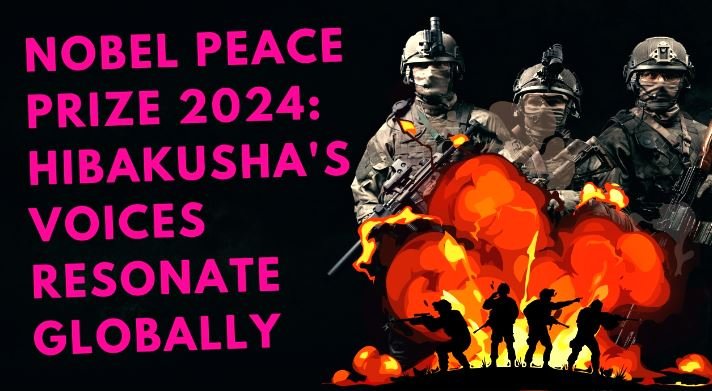The 2024 Nobel Peace Prize awarded to Nihon Hidankyo, the federation of atomic bomb survivors from Hiroshima and Nagasaki, serves as a crucial reminder of the persistent nuclear threat facing our world today. This honour not only celebrates the resilience of the Hibakusha—those who survived the atomic bombings—but also highlights the urgent need for the global community to confront the realities of nuclear warfare. Their experiences are more than historical accounts; they represent a compelling call to action for disarmament and a collective commitment to prevent the catastrophic consequences of nuclear weapons.
The Hibakusha’s advocacy has been instrumental in translating the abstract notion of nuclear conflict into a tangible and immediate concern. Through their harrowing testimonies, they engage younger generations who may lack direct connections to these historical events, ensuring that the existential dangers posed by nuclear arsenals are not forgotten. Their stories are urgent warnings against complacency, urging society to acknowledge the continuing risk of nuclear weapons. Nihon Hidankyo’s work, which began in 1956, unites survivors and victims of nuclear testing, advocating for nuclear disarmament through public demonstrations, international appeals, and participation in peace conferences. Their relentless activism has played a vital role in shaping public opinion and influencing policymakers to recognize the pressing need for disarmament initiatives. Yet, despite the existence of international treaties like the Treaty on the Non-Proliferation of Nuclear Weapons (NPT) and the Treaty on the Prohibition of Nuclear Weapons (TPNW), the effectiveness of these legal frameworks in curbing nuclear proliferation is increasingly questioned. The International Court of Justice (ICJ) issued an Advisory Opinion in 1996 stating that the threat or use of nuclear weapons is generally incompatible with humanitarian principles, yet it stopped short of declaring them illegal in all circumstances. This ambiguity allows for dangerous interpretations that could undermine efforts for disarmament. As geopolitical tensions rise and nuclear states modernize their arsenals, the urgency of the Hibakusha’s message is magnified. Their first-hand accounts remind us of the devastating aftermath of nuclear attacks, reinforcing the notion that these weapons are not mere tools of war but catastrophic threats to humanity. The recent Nobel Prize award offers a pivotal opportunity for global leaders and citizens alike to confront the grim reality that as long as nuclear weapons exist, the risk of disaster remains. The Hibakusha emphasize the need for nuclear-armed states to take concrete disarmament steps, including reducing stockpiles and ceasing nuclear testing. Their message calls for comprehensive measures that go beyond legal frameworks to promote peace and security worldwide. This recognition by the Nobel Committee acts as a powerful platform for amplifying their voices and reiterating the importance of their cause. However, achieving meaningful disarmament faces significant challenges. The intersection of international relations and national security interests complicates the landscape, often impeding progress. The prevailing belief that nuclear weapons provide security must be challenged, and the Hibakusha’s resolve should inspire a renewed commitment to overcoming these obstacles. Their activism serves as a roadmap, demonstrating that persistent advocacy and public education can effect change.
The world must unite in solidarity with the Hibakusha, whose ongoing struggle against nuclear weapons transcends borders and embodies universal values of peace and security. We have a moral obligation to ensure that the lessons from Hiroshima and Nagasaki are not forgotten, and instead, we must actively engage in preventing the recurrence of such tragedies. The time for action is now; the future of humanity depends on our commitment to peace over the peril of nuclear conflict.




